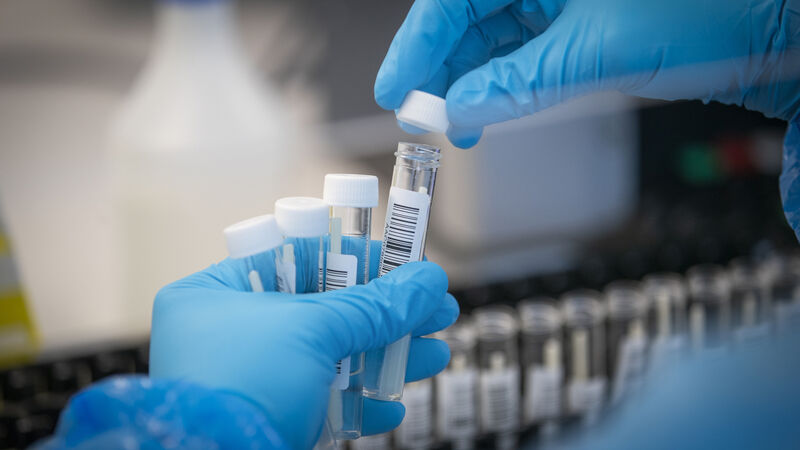Experts warn PCR testing system 'maxed-out'

Infectious diseases expert Dr Eoghan de Barra has called on the Government to make a decision now about using antigen tests as a means of identifying Covid cases, as PCR testing capacity has been overwhelmed.
Infectious diseases expert Dr Eoghan de Barra has called on the Government to make a decision now about using antigen tests as a means of identifying Covid cases, as PCR testing capacity has been overwhelmed.
The curve needed to be flattened and self-isolation was necessary for anyone who has had a positive antigen test or was experiencing symptoms. Making changes in the length of time for self-isolation would be a call for Government and was necessary to stop numbers rising, he said.










